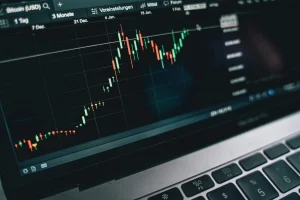Trading in contracts for difference (CFDs) offers a flexible way to profit from the movements of various financial markets. They allow you to trade without owning the underlying asset, which makes them popular among traders. However, your success depends on selecting the right broker who can support your needs and goals.
The wrong broker, on the other hand, can lead to unnecessary costs, poor service, or even risks to your funds. To make informed decisions, you need to understand the key factors that separate a good choice from the rest.

Why Does the Choice of a CFD Broker Matter?
In your trading journey, a CFD broker provides the platform, tools, and support essential for success. Beyond facilitating trades, they influence your experience through the quality of their services and transparency.
For instance, an ideal broker should offer a user-friendly platform, competitive prices, and a wide range of markets to trade. Additionally, a trusted one prioritises security and ensures your funds are handled responsibly under regulated conditions.
Key Factors to Consider
Regulation and Security
Always check if the broker is authorised by a recognised financial authority such as SEBI in India, the FCA in the UK, or ASIC in Australia. Regulatory oversight ensures that your funds are protected and that the broker operates transparently.
Trading Platform
You will spend most of your time on the broker’s platform, so it must be dependable and easy to use. For trading on the go, look for features like real-time data, sophisticated charting tools, and smartphone compatibility. You can make transactions without any delays if the platform is quick and reliable.
Fees and Costs
CFD trading involves spreads, commissions, and sometimes overnight fees. A good broker will have a clear and transparent fee structure. Avoid those with hidden charges, as these can erode your profits over time. Compare fees across different solutions to ensure you are getting value for your investment.
Additional Features to Evaluate
- Range of markets: Choose a broker offering access to multiple asset classes like forex, commodities, indices, and stocks to diversify your trades.
- Customer support: Ensure your solution of choice provides responsive customer service, preferably 24/7, to assist you with technical issues or trading queries.
- Education and research tools: For beginners, brokers offering tutorials, market analysis, and demo accounts can be valuable for learning and practicing trades.
- Deposit and withdrawal options: Check for flexible and fast transaction methods, to ensure smooth management of your funds.
The Final Decision
After evaluating brokers based on the above factors, compare their offers to find one that aligns with your goals. For example, a day trader may prioritise fast execution speeds and low spreads, while a swing trader might focus on advanced charting tools and research resources.
Take advantage of demo accounts to test the platform before committing real funds. This hands-on experience will help you assess usability and features and ensure you make an informed choice.


